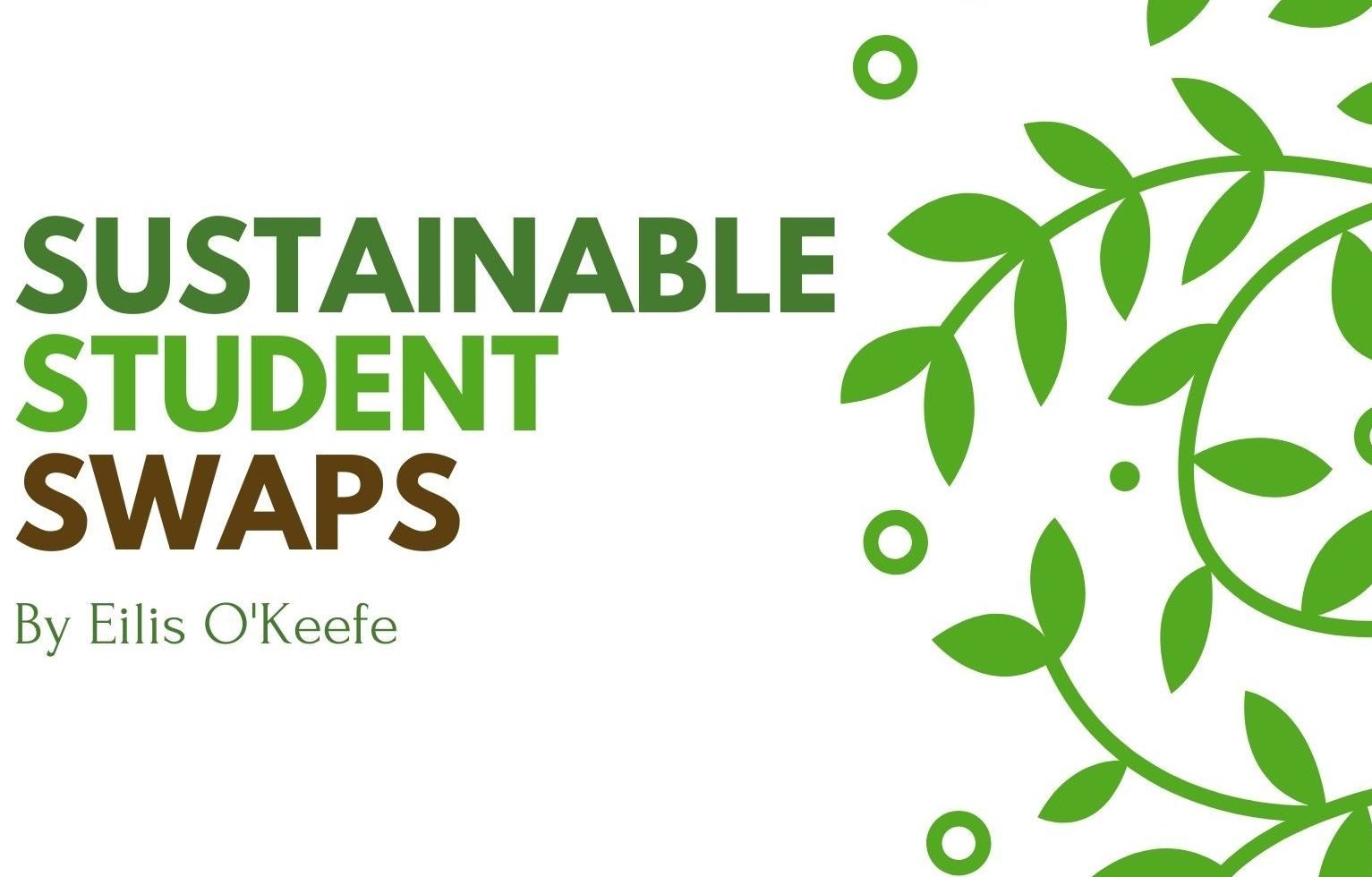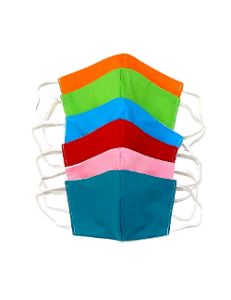
September 23, 2020, by sustainablenottingham
Sustainable Student Swaps
Third-year student, Eilis O’Keefe, has made a list of her favourite sustainable swaps for returning to university this term. 21-27 September 2020 is also Recycle Week. If you can’t reduce or re-use any of these ideas, make sure you recycle wherever possible.
After 6 long months, it’s finally time to head back to uni. It is fair to say that often sustainability is not a top priority for students when thinking about returning to university life. However, easy, student-friendly, sustainable swaps do exist and I have compiled my top 7 choices here for you to try.
1. Re-useable masks
- Let’s start off by getting Covid out of the way. Due to the pandemic, plastic waste has greatly increased. It is estimated that if everyone in the UK wore 1 disposable mask each day for a year, we would produce 128,000 tonnes of plastic! However, this can be prevented by wearing re-usable masks. If washed regularly, these can be used repeatedly. Not only are they more sustainable, they also look better with your outfit…
- Useful links:
2. Soap/sanitiser
- Keeping our hands clean is especially important recently, meaning we are likely to use a lot of soap and sanitiser. Instead of buying a whole new hand soap when you run out, buy soap refill bags. They allow you to refill your empty soap container, instead of constantly buying new plastic pumps, saving plastic and time! You can also get your containers re-filled with sanitiser or hand wash at Shop Zero in Nottingham! If you really want to cut down on plastic packaging altogether, you could also use soap bars as sold by the University of Nottingham’s very own zero waste shop Portland Zero.
3. Second-hand clothing
- It can be difficult not to indulge in some retail therapy from time to time. However, if you are regularly buying clothing which you wear only once or twice, the environmental impact is devastating. So, if you do feel the urge to shop, try some second-hand options. For example, websites like Depop or the sustainable section on ASOS. You can also find second-hand shops in Nottingham, like Cow. Just Hazaar are also setting up the Hazaar app, a zero-waste marketplace where students at the same University can sell clothing to one another, meaning items are second-hand and there’s no postage!
4. Tote/cotton bags
- Make sure that a tote/cotton bag has a permanent spot in your bag or car. Then, whenever you want to make a purchase or go for a food shop, you don’t need a plastic bag.
- Useful links:
- Dash Vegan bags, which are made right here in Nottingham.
- Dash Vegan vegetable bags
5. Bees Wax Wraps
- Bees Wax Wraps are a great alternative to using cling film and plastic packaging. They come in a range of designs and have a mouldable texture allowing you to wrap your food to take on the go or for storage! They can be washed then re-used, reducing plastic waste.
- Useful links:
6. Sanitary products
- For the women reading, it is commonly known that periods are an absolute pain in our lives but
they’re also a pain for the planet. It is estimated that each of us uses 11,000 sanitary products in our lifetime, which either end up in landfill or the sea. However, there are sustainable options to cut down this waste. Not everyone can use one but if you can, a menstrual cup is a great sustainable option. Costing around £10-£20, the price equates to what you would spend on sanitary products in 6-8 months. However, these cups last for years. Alternatively, washable sanitary pads can be used or organic/natural tampons and pads. These all help to reduce plastic waste during your time of the month! - Useful links:

- Menstrual cups can be an intimidating, so I would highly recommend reading Zoe Sugg’s blog: Zoe Sugg’s blog for an honest account of how her team felt using one for the first time.
- Menstrual Cup: www.mooncup.co.uk or www.rubycup.com (every cup sold includes a donation of a cup to a person without access to safe period products)
- Pads: Shop Zero (washable pads) www.myfreda.com (natural/organic pads)
- Tampons: www.wearedame.co (re-useable tampon applicator) www.myfreda.com (organic tampons)
7. Removing Make up
- Cotton wool pads, plastic cotton buds and make up wipes are damaging to the environment, especially as they are used so frequently in most households. These products are often used when removing make up, so a more sustainable option is a re-useable make up remover cloth. These can be washed and re-used, meaning you no longer make daily waste from taking off a full face!
- Useful links:
Even if you can only make a few of these sustainable swaps, forming environmentally friendly habits now is a brilliant way to help the climate crisis. If you are not able to buy new items at the moment, always remember to continue recycling what you can (check the Council website for recyclable items) and re-use what you already own, as using what you already have is the most sustainable option!
No comments yet, fill out a comment to be the first


Leave a Reply